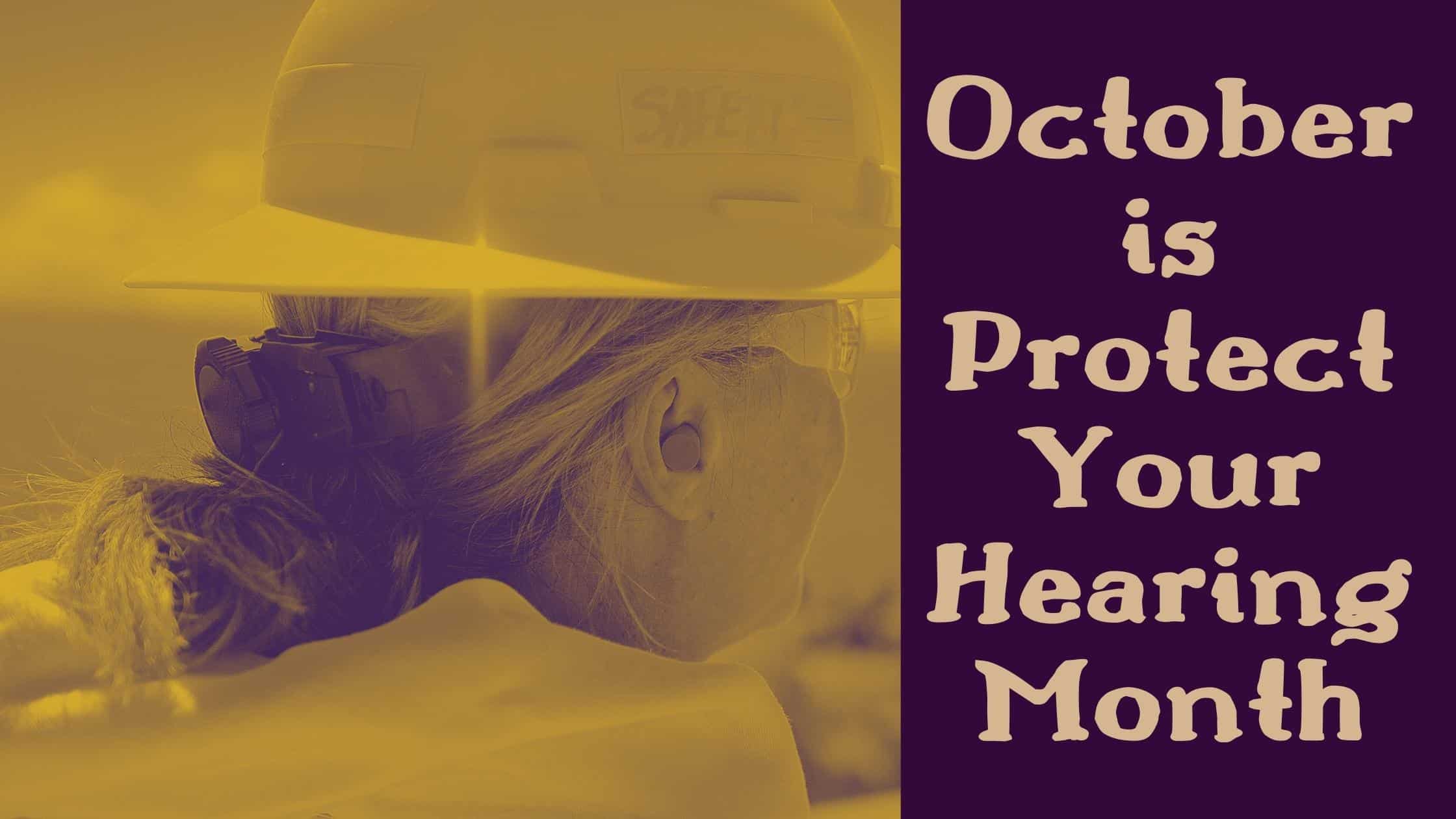When your hearing is healthy, it is easy to take it for granted. Our hearing helps us instantly respond to the world around us. When all is well, that’s great, but when there is an issue without hearing it truly comes into focus how much we depend on our hearing in everyday life. This October is officially Protect Your Hearing Month, a time to raise awareness about noise-related hearing loss and how important it is to preserve our sense of hearing throughout our life.
Your Hearing and Your Health
First, let’s take a look at some of the ways noise-related hearing loss can affect other aspects of your overall health and wellbeing. Untreated hearing loss is a major risk factor for conditions that compromise your quality of life. Linked to highly elevated rates of depression, anxiety, and social isolation, hearing loss makes everyday communication and connection frustrating and stressful when it goes unaddressed.
Hearing loss also takes a physical toll on your body. Untreated hearing issues are firmly linked to an elevated risk of dementia. What’s more: the more severe the degree of hearing loss present, the more elevated the risk. Hearing loss takes a cognitive toll on the way the body functions increasing the risk of falls and accidental injuries.
Noise-Related Hearing Loss
Hearing loss can happen for a variety of reasons, but by far the most common is noise-related hearing loss. Noise-related hearing loss occurs when your hearing is exposed to excessively loud volumes of sound. Sadly, very loud noise can easily cause irreversible damage to our hearing. This is because our hearing sensitivity relies on tiny and delicate “hair cells” that detect vibrations sound waves make in the air and translates the sound into a signal for the brain to interpret.
We use all our hair cells to capture the nuance and detail of incoming sounds. However, when our hearing is exposed to loud noise, it can strain hair cells past their breaking point. Hair cells can’t repair or regrow themselves if they are damaged, unlike many of our body’s cells, so damage to the tiny sensory cells is permanent damage. The more hair cells we lose, the less detail we can perceive in the sound we hear. This is why hearing loss often sounds like speech is muffled or unclear, even when we can detect that someone is speaking.
Noise-related hearing damage can occur anytime we expose our ears to too much noise, and the damage accumulates throughout our life. Gradual hearing injuries will eventually become significant hearing loss where our sense of sound becomes limited because of noise damage. In a troubling trend, new cases of hearing loss are on the rise in younger generations, such as millennials and Gen Z.
How Do You Protect Your Hearing
It is important to recognize that loud noise can have consequences. Noise-induced hearing loss is the most common cause of hearing loss, but it is also the most preventable. A key part of lifelong hearing health is taking into account how important your hearing is and avoiding loud noises or dampening your exposure with earplugs or earmuffs.
The spectrum of damaging noise begins at the sound level of 85 decibels (dB), about the sound of a lawnmower operating. At 85 dB, your hearing will sustain permanent damage after 8 hours of continuous exposure (think working on a loud Jobsite for 8 hours a day). Louder volumes have a greatly reduced “safe” period. Live music, on average, exposes a concertgoer to 105 dB of sound, causing hearing damage in under 10 minutes. Very loud sounds, such as gunshots or fireworks will cause immediate hearing damage if your ears are exposed. They put out a volume of 120 dB. While most hearing damage isn’t physically painful, which sadly makes it harder to notice when it may be occurring, sounds over 130 dB are so loud they induce physical pain in the ear canal.
To keep track of your noise exposure, try a handheld approach. Turn your smartphone into a decibel meter with the assistance of a sound monitoring app. When you notice a loud environment around you, check to see your noise exposure, and take action to protect your hearing. Make a habit of traveling with hearing protection for the noise you can’t avoid, and you can greatly reduce your risk of hearing loss.

